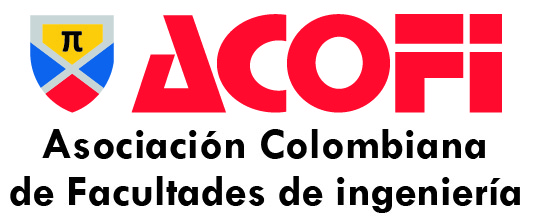Implementación de Invention System Kits como metodología de enseñanza y aprendizaje en ingeniería industrial. Caso de estudio: Escuela Colombiana de Ingeniería Julio Garavito
DOI:
https://doi.org/10.26507/rei.v12n24.765Palabras clave:
Ingeniería, metodologías de enseñanza y aprendizaje, invention system kits, lego mindstormsResumen
Este documento muestra los resultados de un proyecto de investigación cuyo objetivo es explorar nuevas metodologías de enseñanza a través del uso de Invention System Kits, que permitan identificar métodos de aprendizaje en los estudiantes de Ingeniería Industrial de la Escuela Colombiana de Ingeniería Julio Garavito. En particular, se pretende utilizar herramientas de aprendizaje activo como Lego Mindstorms EV3 para potenciar competencias tecnológicas en los estudiantes.Descargas
Tipo:
Artículo de investigación científica y tecnológicaReferencias bibliográficas
Somyürek, S., An effective educational tool: Construction kits for fun and meaningful learning, International Journal of Technology and Design Education., 25, pp. 25-41, 2015. DOI: 10.1007/s10798-014-9272-1
Scaradozzi, D., Sorbi, L., Pedale, A., Valzano, M. and Vergine, C., Teaching robotics at the primary school: An innovative approach, Procedia - Social Behavioral Sciences, 174, pp. 3838-3846, 2015. DOI: 10.1016/j.sbspro.2015.01.1122
Tocháček, D., Lapeš, J. and Fuglík, V., Developing technological knowledge and programming skills of secondary schools students through the educational robotics projects, Procedia - Social and Behavioral Sciences, 217, pp. 377-381, 2016. DOI: 10.1016/j.sbspro.2016.02.107
Balaji, M., Balaji, V., Chandrasekaran, M., Khan, M.K.A.A. and Elamvazuthi, I., Robotic training to bridge school students with engineering, Procedia Computer Science, 76, pp. 27-33, 2015. DOI: 10.1016/j.procs.2015.12.271
Müller, B.C., Reise, C. and Seliger, G., Gamification in factory management education – A case study with LEGO Mindstorms, Procedia CIRP, 26, pp. 121-126, 2015. DOI: 10.1016/j.procir.2014.07.056
Cuéllar M.P. and Pegalajar, M.C., Design and implementation of intelligent systems with LEGO Mindstorms for undergraduate computer engineers, Computer Applications in Engineering Education, 22, pp. 153-166, 2014. DOI: 10.1002/cae.20541
Nee, L.V., Elamvazuthi, I., Ganesan, T., Khan, M.K.A.A. and Parasuraman, S., Development of a laboratory-scale pipeline inspection robot, Procedia Computer Science, 76, pp. 9-14, 2015. DOI: 10.1016/j.procs.2015.12.268
Altin, H. and Pedaste, M., Learning approaches to applying robotics in science education, Journal of Baltic Science Education, 12, no. 3, pp. 365-370, 2013.
Schunk, D.H., Learning theories: An educational perspective. Boston: Pearson, 2012.
Pimienta-Prieto, J.H., Estrategias de enseñanza-aprendizaje: Docencia universitaria basada en competencias. Naucalpan de Juárez: Pearson, 2012.
Kolb, D.A., Experiential learning: Experience as the source of learning and development. Nueva Jersey: Prentice-Hall, 1984.
Salas-Silva, R.E., Estilos de aprendizaje a la luz de la neurociencia. Bogotá D.C: Cooperativa Editorial Magisterio, 2008.
Aragón-de Viau, M., Estilos de aprendizaje. Guatemala: Universidad Rafael Landívar, 2000.
Felder, R.M. and Silverman L.K., Learning and teaching styles in engineering education, Journal of Engineering Education, 78(7), pp. 674-681, 1988.
Ertmer, P.A. y Newby, T.J., Conductismo, cognitivismo y constructivismo: Una comparación de los aspectos críticos desde la perspectiva del diseño de instrucción, Performance Improvement Quarterly, 6(4), pp. 50-72, 1993.
Urbina-Ramírez, S., Informática y teorías del aprendizaje, Pixel-Bit. Revista de Medios y Educación, 12, pp. 87-100, 1999.
Descargas
Publicado
Cómo citar
Número
Sección
Licencia
Se autoriza la reproducción total o parcial de los documentos publicados en la Revista siempre y cuando se cite la fuente y el autor.
| Estadísticas de artículo | |
|---|---|
| Vistas de resúmenes | |
| Vistas de PDF | |
| Descargas de PDF | |
| Vistas de HTML | |
| Otras vistas | |









